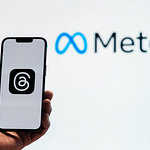Episode Summary:
In this episode of The Transcript Podcast, we discuss the dampening effects of the Delta variant, the strong start to back-to-school, and the metaverse/omniverse that is getting companies excited.
The episode is based on yesterdays’ newsletter which is available on Substack. A transcript of this podcast, with relevant images and quotes, is available, for subscribers only, after the show notes below.
Show Notes:
00:00:00 Introduction
00:00:15 Marginal dampening from the Delta variant
00:01:34 Covid vaccine booster shots needed
00:03:48 No one wants lockdowns again
00:05:18 People are looking forward to back-to-school.
00:06:36 Regulations in China and the effect on tech companies
00:08:31 The metaverse/omniverse
00:09:48 The metaverse could become larger than current economy
Episode Transcript:
Introduction
[00:00:00] Scott: Welcome everyone to a new episode of The Transcript podcast. You've got me Scott Krisiloff, I'm editor of The Transcript along with Erick Mokaya our lead author. We sent out a new issue of The Transcript newsletter yesterday and had a lot of good stuff in there.
Marginal dampening from the Delta variant
The key thing that we were focused on last week was the extent to which the Delta variant is impacting the economy in the US. What we saw is that there was some impact, although pretty marginal at this point. There were companies talking about a little bit of dampening was what one restaurant company [said]. Disney talked about seeing some group and convention cancellations. So a little bit of impact, but overall, the retailers who reported especially reported strong consumer spending and still plenty of foot traffic into stores and a really strong start to the back of the school season in general. The economy is still, very strong, despite some marginal dampening from the Delta variant. Mokaya, you have anything to add to that?
"With the Delta virus we're seeing a little bit of dampening. It's hard to tell whether that's the Delta virus or just seasonality. We suspect it's a little bit of both." - Ark Restaurants (ARKR) CEO Michael Weinstein
[00:01:01] Mokaya: I think it's the same thing that I noticed across the retail space. It's a little bit of marginal impact as you'd call it, but then mostly the consumer is resilient. The theme you keep seeing is of course, the disruptions in supply chains that are continuing into this second half of the year. Something else that struck me a lot also was the fact that a company like Tyson Foods is saying that labor is their number one challenge currently. They're really looking out for the easing of that kind of labor shortages as they head into September.
Covid vaccine booster shots needed
Some statistics that came out this past few weeks is that the vaccine that we've been having, its effect moderates with time, six months or so, so you need a third booster. It’s always interesting to see BioNTech and also Dr. Fauci come out and say that the third dose may be needed. I don't know how soon that will be available in the US but in Sweden there's a consideration of maybe early next year for the third dose for that matter. But overall most of the companies that we saw the data and statistics for August, they are saying that the impact is not much to write home about there.
“We believe that the best approach at the moment to deal with the situation is to continue with a booster dose with the existing wild-type strain, which creates antibody responses which are about fivefold higher than the antibody titers -- neutralizing antibody titers after the second shot” - - BioNTech (BNTX) CFO Sierk Poetting
[00:02:13] Scott: I think expanding on the Delta variant stuff, anecdotally, what I'm noticing is that anything that is a personal decision, people are still pretty much making the same decision as they would have otherwise. There's some concern in the back of your head about whether you're traveling as much or going out to restaurants as much, but for the most part, I see restaurants packed and people living their lives. But when there's institutional decisions, it's much easier for the institutions to decide to be much more conservative. I'm hearing people like on the work from home basis, I spoke to somebody last week who was at a big Fortune 100 company, the company, told them they won't go back to the offices until August of 2022. Full year from now that they're already saying they're not going back. Everybody who is planning to go back to offices after Labor Day, I haven't heard anybody who's being forced to go back in the offices personally that I'm talking to. That's the divide on the Delta variant, in the US right now.
[00:03:13] Mokaya: Something I picked up from the Deloitte US which may explain a little bit of when it comes to individual positions, people are more making their decision of, okay, it's here with us, we’ve got to learn to live with it. What he says there is that there is a realization that as the Delta variant surges along, COVID will probably be with us for a little while longer. That may be pushing people to make that decision of say, let's go out to just live life and try to be as normal as possible even though we know the Delta variant is there as long as you're vaccinated and all. Don't you think so?
“There’s a tension between the desire of some leaders to bring back a preponderance of in-person work and a yearning of many in the labor force to preserve the level of flexibility. This is not an all-or-nothing, though" - Deloitte U.S. CEO Joe Ucuzoglu
No one wants lockdowns again
[00:03:48] Scott: Yeah, I think so. I don't think anybody wants to go back to lockdowns again in the United States. There's no will towards that, especially when it looks like 90% of the hospitalizations are happening among people who are unvaccinated. So really the perpetual spread of this here in the US is on the shoulders of people predominantly who have not been vaccinated. If you haven't been vaccinated, go get vaccinated. There's billions of doses that have now been administered so concerns about health effects we would have seen these already pop up in my opinion.
[00:04:26] Mokaya: I would agree on that because this past week Australia went into a lockdown and the kind of reactions that they've seen there, people are noticing that lockdowns may not be the best way to live. You've got to learn to live with the virus, take precautions of course, but at the same time, life doesn't need to stop at the end of the day. That's what I'm learning. As you go forward, maybe also stretching out to what the Deloitte US CEO said, is about companies are still trying to figure out this work from home and work from office kind of mix. What's the best mix. Some companies have already made that decision, like okay, until the next year. Even those who are very keen on having people back by September are delaying those decisions a little bit, especially with the surge of the Delta variant.
People are looking forward to back-to-school.
Something else you said before which we picked up was about the back to school. Lots of the retailers are commenting on this. I picked a lot of quotes about that. The way it's developing so far, it's hitting past 2019 numbers, which tells you that people are really, really looking forward to students or kids being back in school. It will be very interesting seeing how this plays out in September-October, even as the cases rise and what people do with that. Don't you think so?
“we're off to a really strong back-to-school start" - Target (TGT) CEO Brian Cornell"…it does feel like kids are physically going to be back to school...So, the consumers’ pattern, I would put it more close to 2019, Jonathan, than 2020, mostly because of the impact of environmental things, the pandemic across our store fleet, etcetera." - Foot Locker (FL) CEO Dick Johnson"And then relative to back-to-school holiday, back half of the year, I'd say right now, we are happy with how back-to-school is playing out.” - Kohl's (KSS) CEO Michelle Gass
[00:05:48] Scott: Yeah, I think so. And we've been talking about this for several weeks now about looking forward to the end of summer here in the United States and people getting back into more of a normalized cadence of their life after we had this summer euphoria post-COVID vaccination.
We really are getting into that. The back to school sales suggest that people are really excited to get back to a more normal phase of life. And again, that's the question. I think there's two motivations to the work-from-home thing. There's one, the institutions being more conservative, but then also I think people don't really want to go back into the office five days a week. From that standpoint, the adults at least don't want to come back into the office. I think a lot of people want their kids back in school though.
Regulations in China and the effect on tech companies
[00:06:36] Mokaya: Something else that you were discussing before the podcast was about regulation in China. It's been impacting the valuations on tech companies. They’ve taken a huge hit this past week. A company like Alibaba is actually 50% down from its October highs last year. It's the new development in China where there's some regulations coming into force. Some are being fined a lot. I don't know if you've been following that. I saw that companies which are listed in the US but are Chinese-based have had to comment about this, especially because analysts are asking them these tough questions. They're very conservative in their approach. They're more in line with whatever it is that the Chinese government wants to do. That was pretty interesting to see. I didn't see anyone who's coming out to very strongly against [them]. Most of them just respond in a very “subservient” manner. We will do whatever it is the government wants to do. It will be interesting to see what that turns out to be there. But most Chinese-based tech companies are actually trading at multi-year lows in terms of valuations. So could be places to pick up a few if you can handle the government risk there, could be a place to go and pick a few interesting companies to follow. Any thoughts on that?
[00:07:56] Scott: Yeah, it seems like a good value catalyst to have this going on. It was interesting, the quote you pulled out from Tencent, them talking about the internet regulation in China just being an extension of what's going on around the rest of the world. A lot of governments around the world are talking about how to regulate the internet. We have these very large internet companies that have not really had any regulation tied to them that are impacting public discourse and government and things like that. Regulation is something that's happening all over the world.
The metaverse/omniverse is coming
It also dovetails nicely into another theme that was in this week's newsletter about the multi-verse and the omniverse, whatever people are calling it now which is potentially the next phase of internet engagement. We had a bunch of quotes in there and I also saw last week a really interesting segment on CBS Morning News with Mark Zuckerberg which was him doing a VR interview with one of the hosts of CBS This Morning. The reason I thought it was really interesting is because that's a very mainstream, non-business looking forum when you're going there. The omniverse seems to be coming and it could be very wild.
[00:09:12] Mokaya: It is. The excitement you see in a lot of companies, Facebook is leading because I think when you read Roblox and all these kinds of companies, they've been doing this for a little while. One of the companies said they've been doing this for 15 years, but then Facebook comes and says, okay, we are taking that and actually bringing it to your home, bringing it to CBS This Morning. Taking it mainstream, that’s what Facebook did to the metaverse this past quarter. Now companies are being forced to also clarify ‘where are you in terms of also helping build these metaverse’?
The metaverse world might become larger than our current economy
One of the companies that is also way ahead in that area is Nvidia. One thing that I've learned from this is that this is not going to be one company leading the omniverse. There needs to be strategic partnerships between various companies. If you're looking for a catalyst there, you need to look for a couple of companies which are major players in that area, and some of them are Nvidia, Roblox, and Tencent and also Unity Software. This is a theme that has come to the forefront it could be time to actually really take a deep dive into that area and actually figure out a little bit more about what's happening as an investor. The Nvidia CEO is very convinced that the metaverse world is going to be way larger than our current economy and it's really hard to doubt what they're saying.
"I'm fairly sure that at this point, that Omniverse or the metaverse is going to be a new economy that is larger than our current economy." -NVIDIA(NVDA) CEO Jensen Huang
[00:10:36] Scott: Yeah. I mean, can you imagine the speculative activity that would go on in the metaverse right now in this economic era. People will be buying land in the metaverse…
[00:10:46] Mokaya: NFTs also…
[00:10:48] Scott: Yeah. It’s an extention of all of that.
[00:10:51] Mokaya: It's a natural extension of the crypto craze, which you saw in one of the quotes this past quarter, Robinhood had 62% of crypto volume just based on Dogecoin. Imagine Dogecoin in the metaverse now.
[00:11:05] Scott: Yeah, absolutely. Fundamentally, is there going to be scarcity to any of this? That’s the question and if there's scarcity, there's so much money flying around the world right now that prices go up. Dogecoin doesn't even have scarcity though. Right?
[00:11:23] Mokaya: I have no idea what it is. It's an interesting time to be at, there’s metaverse, Dogecoin, cryptocurrencies and all these which are supposed to power the next world. Very interesting to see how this physical and the virtual merge as we go forward.
Anything else that you may have picked up?
[00:11:47] Scott: don't think so. I think that was a good rundown.
[00:11:49] Mokaya: So maybe something I then added later was a book I've been reading called Oversubscribed and it really fits in well now with what we're building at The Transcript. It talks about defining your markets and knowing what people really care about. For us, we care about earnings calls and our readers care about that. It dovetails perfectly with what we are building at The Transcript. It's a book that I would really recommend anyone to read. I had two quotes there. One of them says that your market is made up of the people who really care about what you do. That's the kind of readers and listeners we have at the end of the day. It's a really good book. I hope if you have time to have a look at it to pick more points and share them with our readers as we go along. We can stop there for this week. Thank you so much for joining us and hope to see you again next week. From us here at The Transcript we say bye.















Share this post